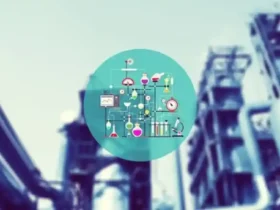
Chemical processing plays a vital role in modern society, producing materials and products essential to our daily lives—from pharmaceuticals and fuels to plastics and fertilizers. However, the impact of chemical processing on the environment and human health has raised serious ethical concerns. As industries evolve, there is a growing need to focus not just on profitability and efficiency but also on sustainability and corporate responsibility.
In this article, we explore the key ethical considerations in chemical processing, with a focus on sustainable practices, environmental stewardship, and corporate accountability.
1. The Ethical Imperative in Chemical Processing
Ethics in chemical processing revolves around the principle of “doing the right thing” for people, the planet, and future generations. Ethical practices aim to:
- Minimize harm to the environment and public health
- Promote fair labor practices and community well-being
- Encourage transparency and accountability
- Foster innovation that supports sustainable development
As global awareness of climate change and pollution grows, companies in the chemical industry are increasingly expected to operate responsibly and transparently.
2. Sustainability in Chemical Processing
Sustainability is a major ethical pillar in chemical processing. It refers to meeting present needs without compromising the ability of future generations to meet theirs. The core areas where sustainability intersects with chemical processing include:
a) Green Chemistry
Green chemistry involves designing chemical processes and products that reduce or eliminate hazardous substances. Key principles include:
- Using safer solvents and reagents
- Increasing energy efficiency
- Designing for degradation (biodegradable products)
- Minimizing waste production
Green chemistry not only reduces environmental impact but also enhances worker safety and reduces disposal costs.
b) Resource Efficiency
Chemical processing often relies heavily on finite resources such as fossil fuels and freshwater. Ethical companies strive to:
- Use renewable raw materials when possible
- Recycle solvents and catalysts
- Implement energy recovery systems
- Optimize reaction conditions to reduce waste
These practices reduce the carbon footprint and overall environmental impact of chemical operations.
c) Waste Management
Managing chemical waste is crucial to prevent soil, air, and water pollution. Ethical waste management includes:
- Safe handling and storage of hazardous materials
- Proper disposal or neutralization
- Recycling and reuse of by-products
- Compliance with local and international waste regulations
Failure in this area can result in serious environmental disasters and health crises, such as the Bhopal gas tragedy.
3. Social Responsibility and Human Health
Beyond environmental concerns, ethical chemical processing must also consider its impact on people:
a) Worker Safety
Chemical plants often pose risks such as exposure to toxic chemicals, explosions, and machinery-related injuries. Responsible companies:
- Provide regular safety training
- Equip workers with protective gear
- Implement stringent safety protocols
- Conduct routine health checks
Ensuring a safe workplace is not only a legal obligation but a moral one.
b) Community Engagement
Chemical plants often operate in or near communities. Ethical engagement involves:
- Communicating potential risks transparently
- Supporting local economic development
- Investing in community education and health programs
- Addressing concerns promptly and honestly
Positive community relations can foster goodwill and long-term support.
c) Product Responsibility
Chemicals are used in countless products, some of which may pose risks to consumers. Companies have a duty to:
- Conduct thorough product testing
- Clearly label hazards and safe usage guidelines
- Respond swiftly to product-related issues or recalls
Ethical companies prioritize consumer safety over profit.
4. Regulatory Compliance and Corporate Accountability
Operating ethically also means complying with environmental, safety, and labor laws. However, ethical responsibility goes beyond legal compliance:
- Transparency: Sharing emissions data, safety records, and sustainability goals
- Third-party Audits: Inviting independent bodies to verify compliance
- Corporate Governance: Establishing ethics committees and sustainability officers
These practices build trust with stakeholders and the public.
5. Innovation and the Future
Ethical chemical processing is also about forward-thinking innovation. Companies are exploring:
- Carbon capture and utilization (CCU) to reduce greenhouse gas emissions
- Biodegradable polymers to address plastic pollution
- Waterless chemical processes to save freshwater resources
- AI and digital tools to optimize operations and reduce waste
Investing in such innovations signals a commitment to long-term ethical excellence.
6. Challenges and Trade-Offs
Despite best intentions, companies often face dilemmas:
- Green alternatives may be more expensive or less effective.
- Transitioning to sustainable methods requires significant investment.
- Balancing shareholder interests with social responsibilities can be difficult.
Ethical decision-making involves carefully weighing these trade-offs and striving for solutions that do the most good with the least harm.
Ethical considerations in chemical processing are no longer optional—they are essential. As public awareness grows and regulations tighten, companies that embrace sustainability and social responsibility will be better positioned for long-term success.
Ethics in chemical processing is about more than compliance; it’s about shaping a future where innovation, profitability, and planetary health go hand in hand. By adopting ethical practices, the chemical industry can become a force for good—serving not only markets but also humanity and the environment.







Leave a Reply